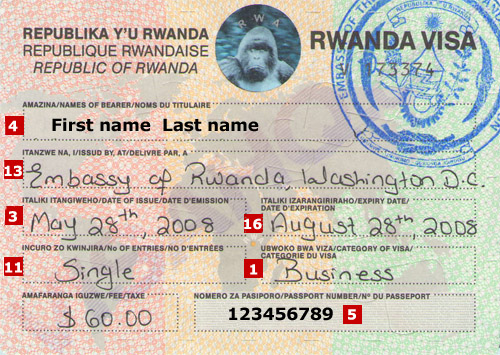Rwanda Embassy list in Netherlands
Need help?Chat with us
Importance of Trip Registration at the Rwanda Embassy
Registering your trip with the Rwanda embassy is crucial for ensuring safety, effective communication, and access to support during emergencies. In case of natural disasters such as earthquakes or floods, registration provides the embassy with your details, allowing them to reach out and assist you swiftly. Similarly, during instances of political unrest, having your information registered helps the embassy facilitate your safe evacuation or provide guidance on the situation. In medical emergencies, being registered can accelerate assistance, ensuring you receive the care needed quickly. This proactive step not only enhances your security but also fosters a sense of community and support during your travels, making it an essential part of your trip planning.
Rwanda Embassy FAQs
Can the Rwanda embassy assist in legal issues abroad?
Yes, the Rwanda embassy can provide guidance and support for Rwandan citizens facing legal issues abroad, including connecting them with local legal assistance.What should I do if I lose my Rwanda passport in the Netherlands?
If you lose your Rwanda passport in the Netherlands, contact the embassy immediately. You will need to provide identification and potentially a police report to apply for a replacement passport.How can I contact the Rwanda embassy in the Netherlands?
You can contact the Rwanda embassy through their official website or by phone. The embassy provides all necessary contact information for inquiries.Does the Rwanda embassy offer cultural services?
Yes, the Rwanda embassy often hosts cultural events and programs to promote Rwandan culture and strengthen ties between Rwanda and the Netherlands.
Services Provided by Rwanda Embassies in Netherlands
Passport Services
- Issuance of new passports
- Renewal of passports
- Lost passport replacement
Visa Issuance for Foreign Nationals
- Tourist and business visas
- Student visas
- Work visas
Assistance in Legal or Medical Emergencies
- Legal advice and support
- Medical assistance coordination
Travel Alerts and Safety Updates
- Information on travel advisories
- Safety updates regarding current events in Rwanda
Support for Nationals Detained Abroad
- Assistance for legal representation
- Communication with family members
Summarized Diplomatic Presence
The Rwanda diplomatic presence in the Netherlands primarily includes the Rwandan embassy located in The Hague. This embassy plays a vital role in fostering diplomatic relations and cooperation between Rwanda and the Netherlands on various issues such as trade, development, and cultural exchange. The embassy serves as a central point for Rwandan citizens in the Netherlands, ensuring they have access to necessary services and support. Strengthening these bilateral relations is crucial for advancing both nations’ interests and promoting mutual understanding, as well as facilitating collaboration on international matters.
